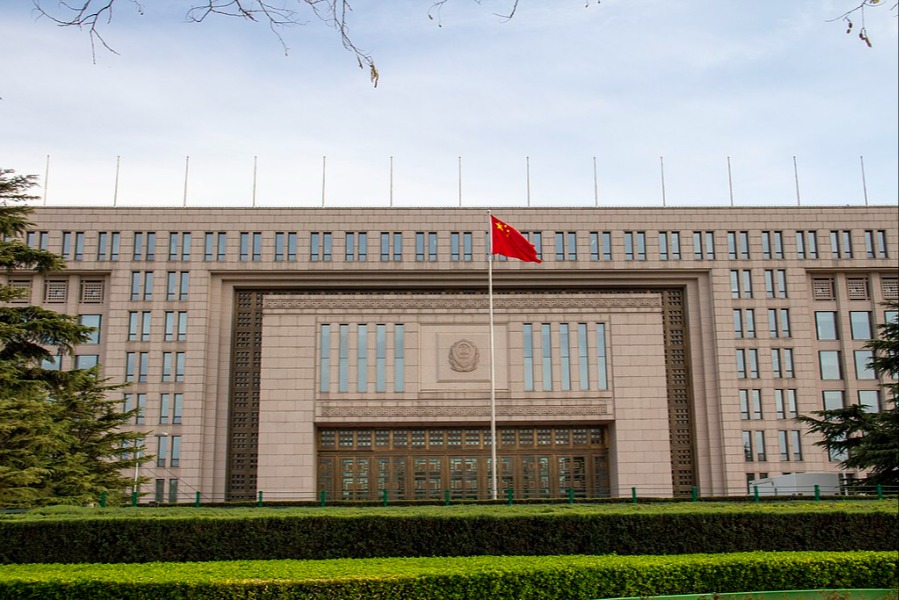White House Misses Deadline to Begin Implementing New Russia Sanctions
While the president’s reported plans regarding the JCPOA have rightly garnered a great deal of attention, another sanctions-related deadline came and went with little fanfare.
Published by The Lawfare Institute
in Cooperation With

While the president’s reported plans regarding the JCPOA have rightly garnered a great deal of attention, another sanctions-related deadline came and went with little fanfare. Specifically, October 1 was the deadline for President Trump to take initial actions under the legislation he signed in August to target the Russian defense and intelligence sectors. But as of October 13, the administration has yet to do so.
The Deadlines
On August 2, President Trump signed into law the Countering America’s Adversaries Through Sanctions Act. As discussed in an earlier post, the bill included provisions related to sectoral sanctions targeting Russia. As Eric Lorber explained earlier this year:
[T]he United States has developed “sectoral sanctions” targeting selected entities in the financial, energy, and arms sectors of the Russian economy. These entities are listed on the Sectoral Sanctions Identification List (“SSI List”). Such sectoral sanctions generally prohibit U.S. persons from engaging in certain kinds of medium- and long-term transactions but generally allow day-to-day business activity; they also prohibit U.S. person involvement in many activities related to deep-water, Arctic offshore, or shale oil projects.
The bill both codified certain pre-existing sectoral sanctions (with several modifications) and imposed new ones–and that’s where the deadlines come in. The bill required the administration to take certain actions involving sectoral sanctions within 60 days of the bill’s enactment, and that period elapsed October 1.
For example, Section 231 imposes sanctions on anyone who:
the President determines knowingly . . . engages in a significant transaction with a person that is part of, or operates for or on behalf of, the defense or intelligence sectors of the Government of the Russian Federation, including the Main Intelligence Agency of the General Staff of the Armed Forces of the Russian Federation or the Federal Security Service of the Russian Federation.
Although Section 231(a) gives President Trump 180 days to actually impose specific sanctions measures, Section 231(d) requires him to start the process within 60 days:
(d) Requirement To Issue Guidance.—Not later than 60 days after the date of the enactment of this Act, the President shall issue regulations or other guidance to specify the persons that are part of, or operate for or on behalf of, the defense and intelligence sectors of the Government of the Russian Federation.
As of October 13, the administration has neither issued such guidance nor provided an explanation as to why it has been delayed.
Several recent actions suggest that the Trump administration is aware of the bill’s sectoral sanctions requirements. For example, on September 29, President Trump issued a presidential memorandum delegating “to the Secretary of State, in consultation with the Secretary of the Treasury, the functions and authorities vested in the President by” Section 231. Additionally, the administration has complied with other 60 day sectoral sanctions-related deadlines. For example, Sections 222 and 223 effectively codified and intensified pre-existing sectoral sanctions that had been imposed under Executive Order 13662. The government made the modifications that Section 223 required be done within 60 days on September 29. Moreover, although President Trump’s signing statement included a number of constitutional objections to specific provisions of the bill (including Section 222), Section 231 is not among them.
Congressional Reaction
Members of Congress have taken note of the missed deadline. Sens. John McCain and Ben Cardin–both of whom have been influential voices throughout the Russia sanctions debate–wrote a letter to President Trump two days before the October 1 deadline warning him of its imminence. Both were highly critical when the deadline passed with neither action nor explanation:
The delay calls into question the Trump administration’s commitment to the sanctions bill which was signed into law more than two months ago, following months of public debate and negotiations in Congress. They’ve had plenty of time to get their act together. In addition to the administration’s lack of responsiveness on this deadline, there does not appear to be a significant diplomatic effort to engage our allies in Europe and lead an effort to increase pressure on Moscow. Congressional intent was clear, reflected in the overwhelming bipartisan majority in favor of the legislation. . . . We again request that the administration respond to our letter, and engage Congress in a serious way moving forward.
As of October 13, the White House has not responded to these accusations. Given the continued concerns regarding Russian intervention in the 2016 election–concerns which helped inspire the legislation in the first place–the administration’s failure to implement sanctions which passed with “overwhelming bipartisan support” will not go unnoticed.





